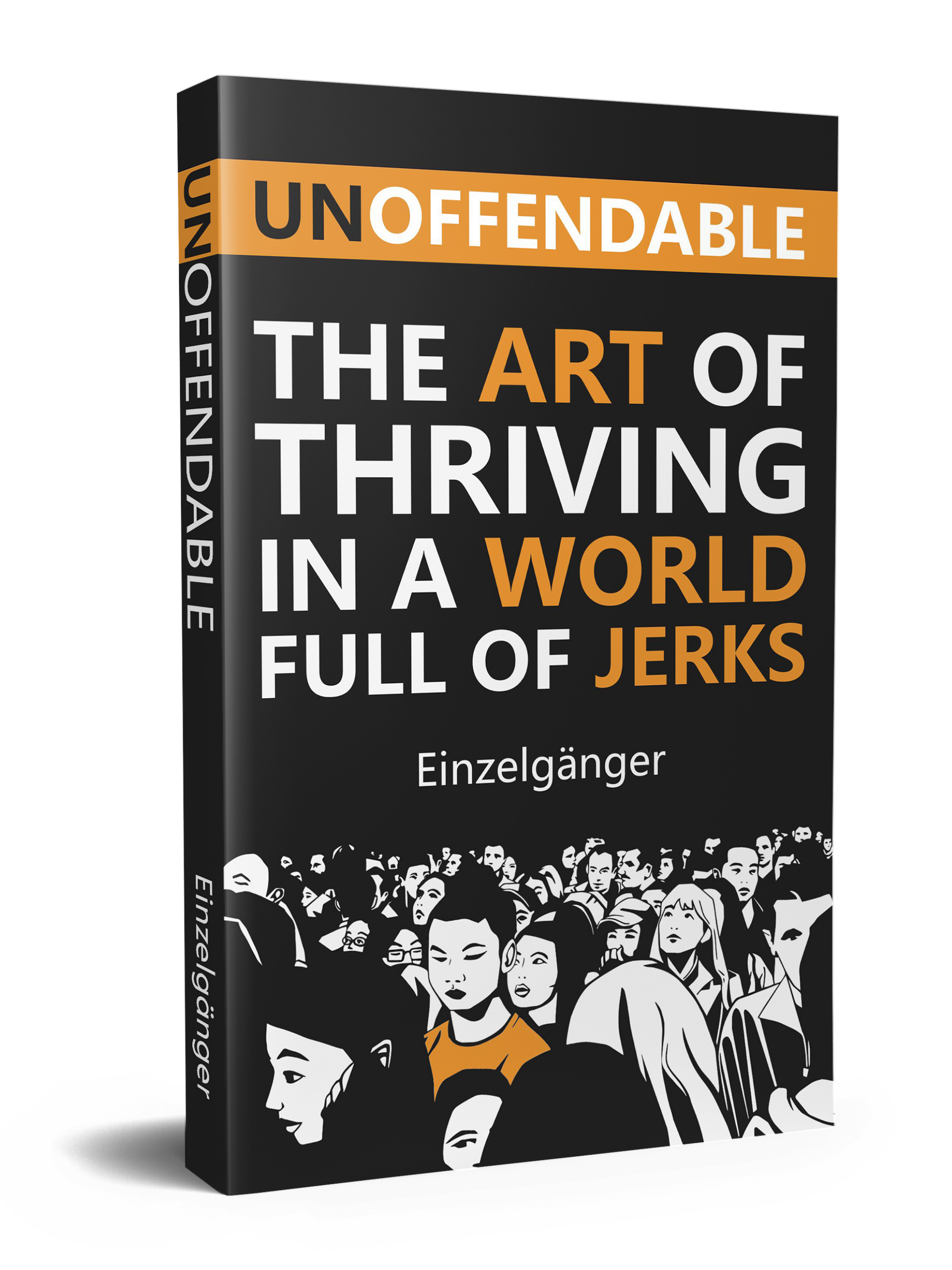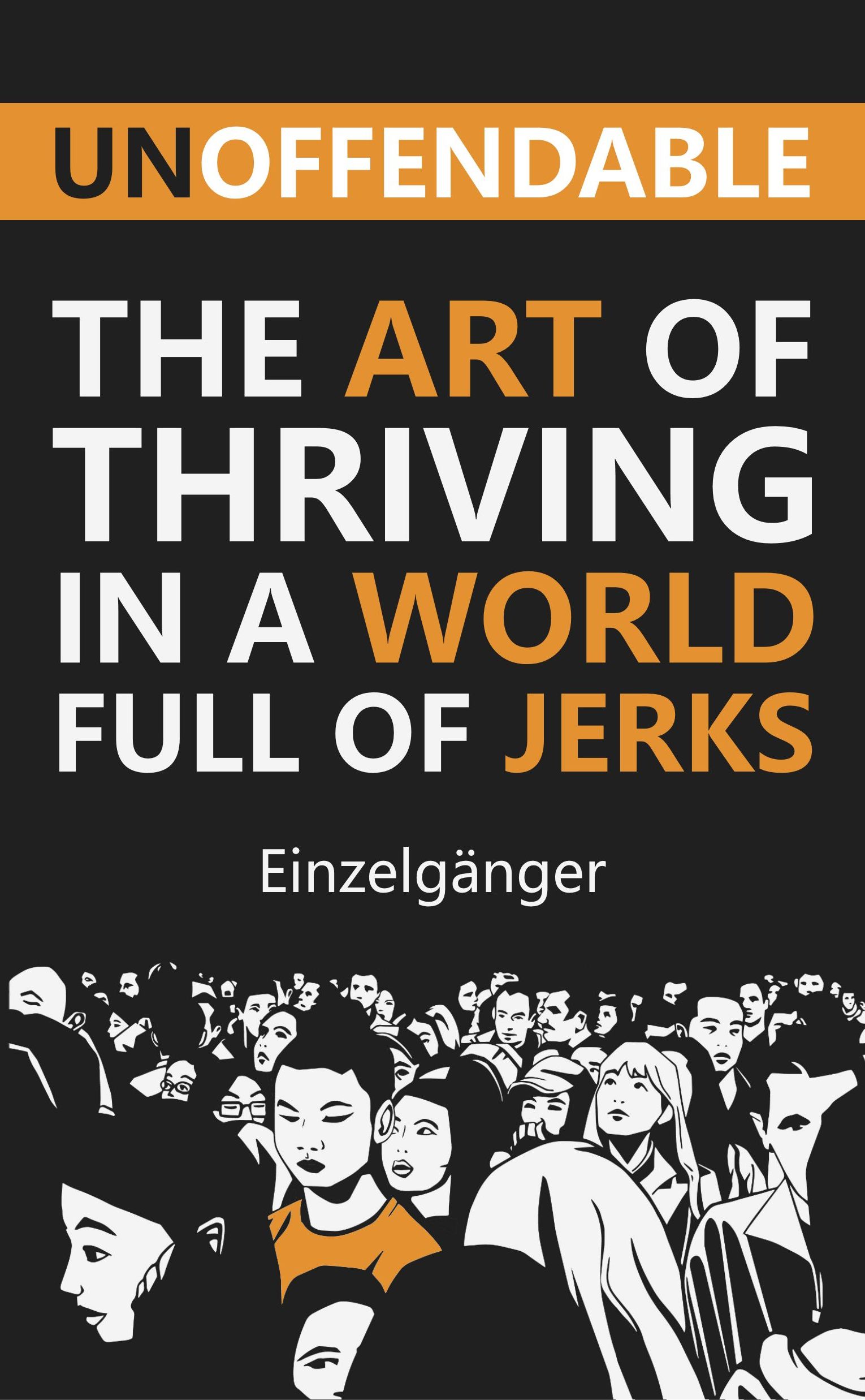..then this book is for you.




The ancient Stoics observed that some things are in our control and others are not. We cannot control the foul language of people, opinions that oppose our own, and that there will always be a bunch of trolls that intend to trigger us for fun. What happens in our environment isn’t up to us. But what *is* up to us, is the way we handle it. Stoicism plays a major role in this book.

Many choose to spend heaps of time and energy reacting to the mere words of others, which hinders them from pursuing meaningful goals and being at peace in an unruly universe. What a waste! This book explores philosophical ideas backed by personal anecdotes to figure out how we can thrive in a world full of jerks, bullies, and people we simply don’t agree with.

Einzelgänger is the pseudonym of a philosophy-enthusiast and YouTube content creator. Having cared way too much about other people’s opinions he found relief in philosophy, which led to a more authentic way of life. Recently, he noticed an escalation of the trend towards ‘taking offense.’ By sharing his journey he hopes to provide a way out.


This book is largely autobiographical. Besides presenting a detailed analysis of the nature of insults, it will dive into the workings of the mind, putting wisdom into practice. I’ll share my own experiences on how I’ve become more aware of my own thought processes and emotions to build resilience to the nastiness of other people and acceptance that there are many opinions that I don’t agree with. Wouldn’t it be great not to waste so much energy on these things? In the workspace, at school, in public spaces, on the internet and in many other areas of life? Imagine the time and energy you can use for things that truly matter.
This book describes philosophical ideas to help the reader gain insight into the ‘why,’ among other things, the mind works the way it does, and why we shouldn’t care too much about what people think and say. I’ve explained these ideas by using personal anecdotes, characters based on real people in my life, and profound adages from spiritual traditions. Buddhism, Taoism, and Stoicism are the main sources of inspiration for this book and my YouTube channel. It’s no surprise that the schools of this triangle of Indian, Chinese and Greek heritage overlap to a great extent.
The Buddha, Lao Tzu as well as the Stoic teachers were all concerned with reducing human suffering; all agreed that human suffering starts in the mind, and that excessive thinking leads to pain. As Marcus Aurelius famously said: “The happiness of your life depends upon the quality of your thoughts: therefore, guard accordingly, and take care that you entertain no notions unsuitable to virtue and reasonable nature.”